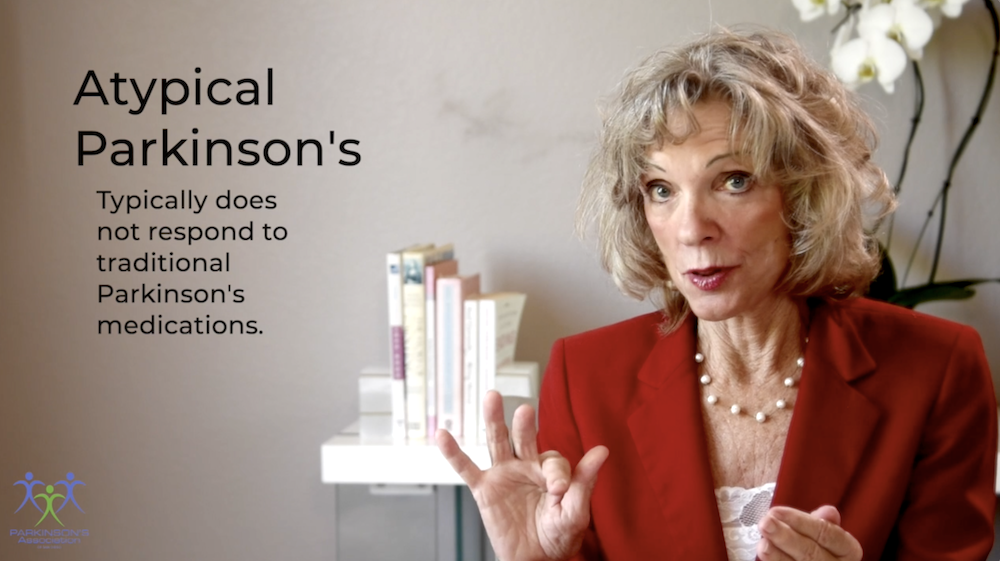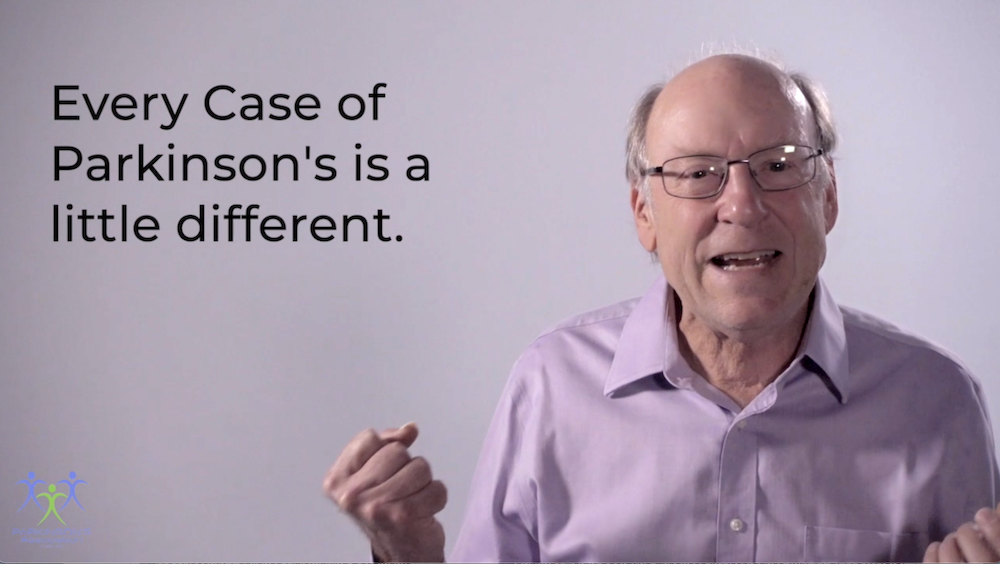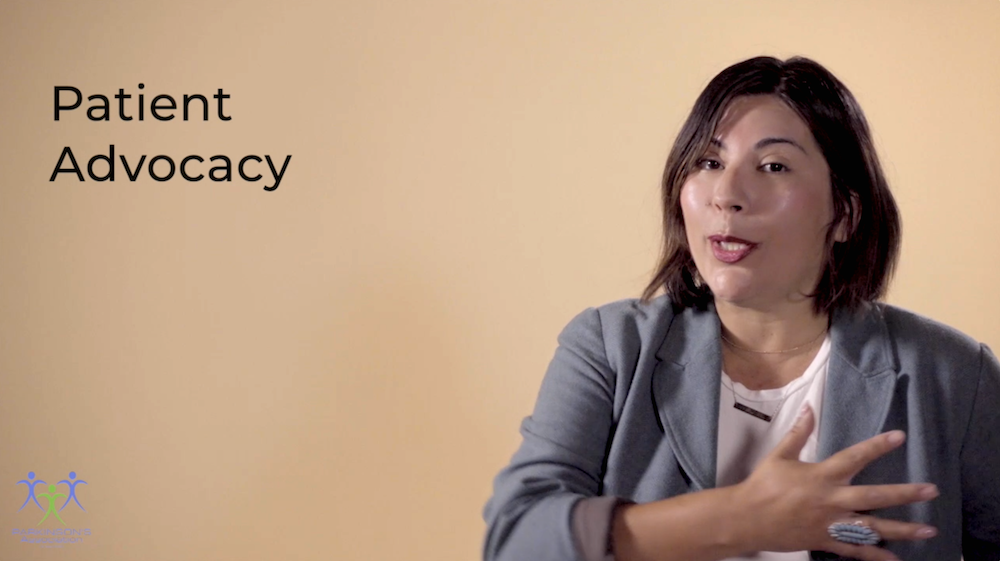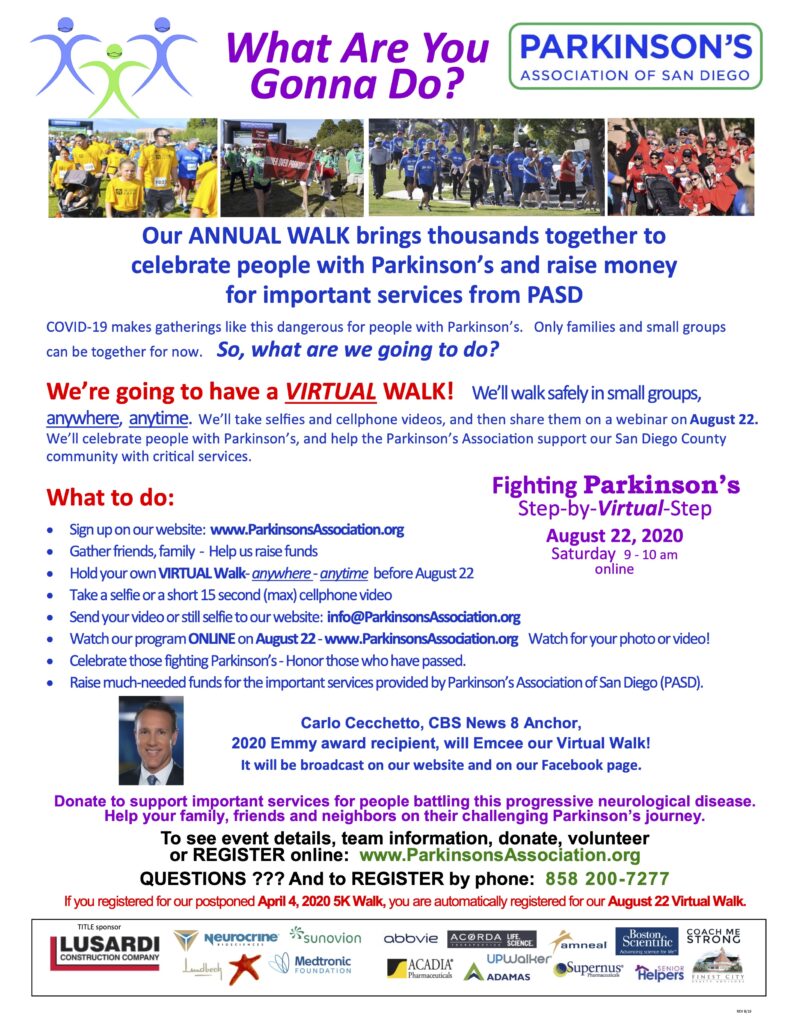An Education Program for Mental Health Professionals
Working with People Impacted by Parkinson’s Disease
The Parkinson’s Association of San Diego has created an education program on the intricacies of working with people with Parkinson’s disease. The six-hour online course includes six continuting education (CE) units.
Parkinson’s Disease is a complex degenerative, incurable neurological disease which requires a multidisciplinary approach to treatment.
This course consists of engaging video interviews with members of a team of specialists – a neurologist, a nurse practitioner, a neuropsychologist, a clinical psychologist, and a social worker. They provide a broad base of information about the motor and non-motor symptoms of the disease, an overview of contemporary thought about etiology, and differential diagnoses.
In addition, they describe cognitive decline and other associated neurological conditions that impact mental health treatment. Next, they address multidisciplinary needs, such as financial challenges, exercise, and social resources, that affect the entire family. Finally, they provide specific guidance while conducting mental health sessions with clients and their care partners and families.
Additional information from the American Parkinson’s Disease Association’s website is included to highlight specific areas of mental health that therapists commonly address across the course of the illness.
Purchase the online course from the Zur Institute. The cost is $150 and includes six CE Units. Of your course fee, $100 will be donated to the Parkinson’s Association of San Diego.
Purchase the online course from the Parkinson’s Association of San Diego. The cost is $100 but does not include CE Units. The course material is the same on both sites.

Everybody with Parkinson’s is different because they all have a slightly different genetic form of Parkinson’s disease. That’s why we always say if you’ve met a person with Parkinson’s, you’ve met one person with Parkinson’s. You cannot generalize it across all the patients that you will be seeing.
Sherrie Gould, NP-C

We know there’s a pathological neurological cause for depression and anxiety so it’s important for providers to understand that this is not simply a reaction to having a disease, it is actually the disease itself that is causing the depression, the anxiety, and cognitive issues.
Joanne Hamilton, PhD

One of my concerns is when people recognize themselves as the caregiver. Joe says, “I have Parkinson’s” and Janet says, “I’m his caregiver.” This is husband and wife, maybe for 50 years. We’re so much more than caregiver and patient – what I’m really focusing on here is the distortion in relationship dynamics that can happen unconsciously when one takes the responsibility as the caregiver and the other as the patient.
Eric Egli, PhD

Parkinson’s is truly a multi-systemic disorder. That’s why it can be so difficult for those affected and their friends and family because, really, it can be disabling in so many ways. People really lose their former identity of who they were and everything they were able to do.
Brenton Wright, MD

A lot of families have to make really tough decisions. Maybe they can’t use a better medication for their symptoms because even $100 is too much out of pocket a month to pay. This is where a social worker really comes in, where we can do research into pharmaceutical company programs, coupon codes, or something like that.
Adriana Gonzalez, LCSW
Outline/Table of Contents:
1 – Introduction – Jeff Seckendorf, Director of Operations, Parkinson’s Association of San Diego
2 – Why I Work with the Parkinson’s Community – Joanne Hamilton, PhD, Neuropsychologist
3 – What is Parkinson’s and What is Not Parkinson’s – Brenton Wright, MD, Movement Disorders Specialist
4 – Known and Suspected Causes of Parkinson’s Disease – Sherrie Gould, NP-C
5 – Common Motor and Non-Motor Symptoms of Parkinson’s Disease – Brenton Wright, MD, Movement Disorders Specialist
6 – Cognition Issues and Advanced Cognitive Decline – Joanne Hamilton, PhD, Neuropsychologist
7 – Why I Work with the Parkinson’s Community – Eric Egli, PhD, Clinical Psychologist
8 – Neurobehavioral Symptoms of Parkinson’s Disease – Joanne Hamilton, PhD, Neuropsychologist
9 – Atypical Parkinsonisms – Sherrie Gould, NP-C
10 – It Takes a Village – Brenton Wright, MD, Movement Disorders Specialist
11 – Parkinson’s Medications and the Family – Sherrie Gould, NP
12 – Why I Work with the Parkinson’s Community – Adriana Gonzalez, LCSW
13 – The Importance of Exercise – Sherrie Gould, NP-C
14 – Financial Challenges of Living with Parkinson’s – Adriana Gonzalez, LCSW
15 – Social and Psychological Resources – Adriana Gonzalez, LCSW
16 – Typical Issues in a Counseling Session – Eric Egli, PhD, Clinical Psychologist
17 – Working with the Family – Eric Egli, PhD, Clinical Psychologist
18 – Conclusion – Jeff Seckendorf, Director of Operations, Parkinson’s Association of San Diego
PURCHASE THE ONLINE COURSE
Purchase the online course from the Zur Institute. The cost is $150 and includes six CE Units. Of your course fee, $100 will be donated to the Parkinson’s Association of San Diego.
Purchase the online course from the Parkinson’s Association of San Diego. The cost is $100 but does not include CE Units. The course material is the same on both sites.


